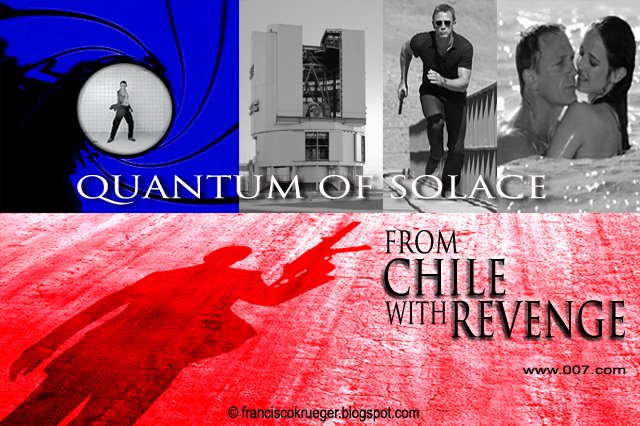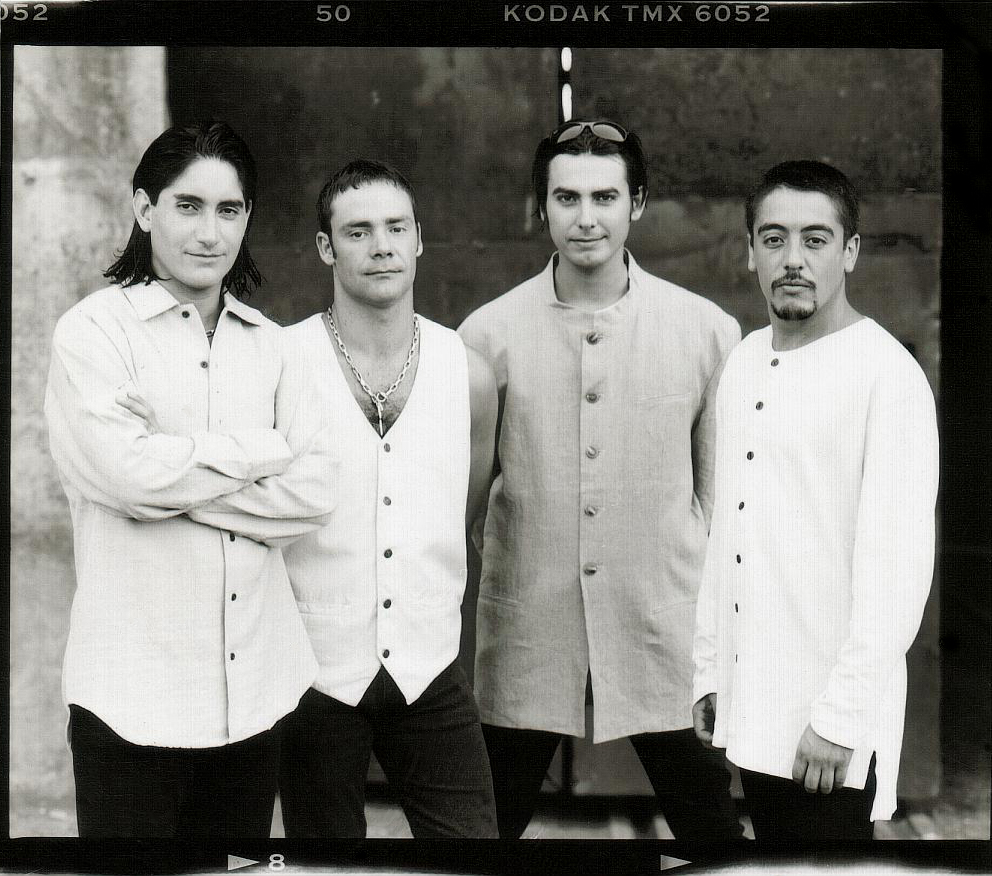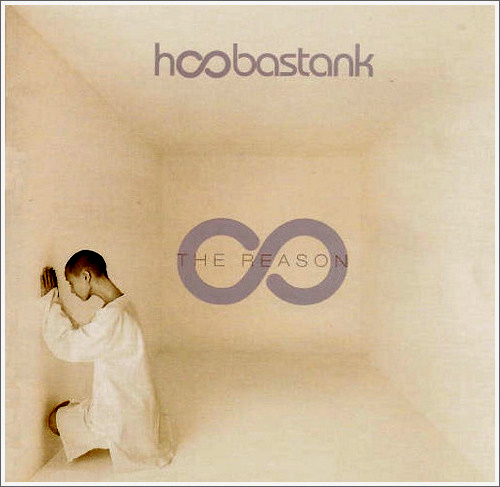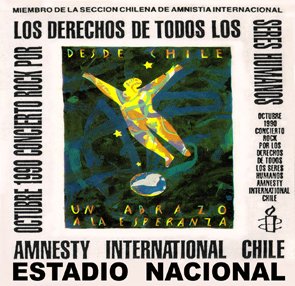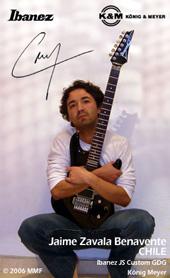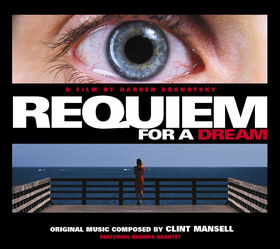Write on Another Side of Paper
 Mel Columcille Gerard Gibson AO (born January 3, 1956) is an Australian raised American born actor, director, and producer. After establishing himself as a household name with the Mad Max and Lethal Weapon series, Gibson went on to direct and star in the Academy Award-winning Braveheart. Gibson's direction of Braveheart made him only the sixth actor-turned-filmmaker to receive an Oscar for Best Director.[1] In 2004, he directed and produced The Passion of the Christ, a blockbuster movie that portrayed the last hours of the life of Jesus.
Mel Columcille Gerard Gibson AO (born January 3, 1956) is an Australian raised American born actor, director, and producer. After establishing himself as a household name with the Mad Max and Lethal Weapon series, Gibson went on to direct and star in the Academy Award-winning Braveheart. Gibson's direction of Braveheart made him only the sixth actor-turned-filmmaker to receive an Oscar for Best Director.[1] In 2004, he directed and produced The Passion of the Christ, a blockbuster movie that portrayed the last hours of the life of Jesus.
Film career
Mad Max
Gibson made his film debut as the leather-clad post-apocalyptic survivor in George Miller's Mad Max. The film was totally independently financed and had a reported budget of $300,000 AUD — of which $15,000 was paid to Mel Gibson for his performance. The film achieved incredible success, and went on to earn $100 million world wide. It held a record in Guinness Book of Records as the highest profit-to-cost ratio of a motion picture, and only lost the record in 2000 to The Blair Witch Project. The film was awarded four Australian Film Institute Awards in 1979. When the film was first released in America, all the voices, including that of Mel Gibson's character, were dubbed with U.S. accents at the behest of the distributor, American International Pictures, for fear that audiences would not take warmly to actors speaking entirely with Australian accents. The original film spawned two larger sequels: Mad Max 2 (known in North America as The Road Warrior), and Mad Max 3 (known in North America as Mad Max Beyond Thunderdome). A fourth movie, Mad Max 4: Fury Road, has been considered but has not been produced.
The Bounty
In
1984, starred as Fletcher Christian in The Bounty. Reportedly, Gibson and Anthony Hopkins, his costar on the film, did not get along during the shoot. At the time, Anthony Hopkins was a teetotaler, and Mel Gibson was struggling with alcoholism. Gibson frequently spent his evenings in local saloons and took to mixing two shots of Scotch with his beer. He dubbed the concoction "Liquid Violence". In one incident, Gibson's face was severely cut up in a bar room brawl and the film's shooting schedule had to be rearranged while he was flown to a hospital in Papeete.Lethal Weapon
Gibson moved into more mainstream commercial filmmaking with the popular Lethal Weapon series, in which he starred as LAPD Detective Martin Riggs, an emotionally unstable Vietnam veteran with a death wish and a penchant for violence and gunplay. In the films, he was partnered with the elder and more reserved Roger Murtaugh (played by Danny Glover). This series would come to exemplify the action genre's so-called buddy film. The two actors were trained in two different schools of acting. Gibson is classically trained and Glover is a method actor. Three sequels were produced.
Hamlet
Gibson made the unusual transition from the action to classical genres, playing the melancholy Danish prince in Franco Zeffirelli's Hamlet. Gibson was cast alongside such experienced Shakespearean actors as Ian Holm, Alan Bates, and Paul Scofield. He described working with his fellow cast members as similar to being "thrown into the ring with Mike Tyson". The film met with critical and marketing success and remains steady in DVD sales. It also marked the transformation of Mel Gibson from action hero to serious actor and filmmaker.
Braveheart
Gibson stated that when the Braveheart script arrived and was recommended by his agents, he rejected it outright because he thought he was too old to play the part. After careful thought, he decided to not only act in the film, but to direct it as well. Gibson received two Academy Awards, Best Director and Best Picture, for his 1995 direction of Braveheart. In the movie, Gibson starred as Sir William Wallace, a thirteenth-century Scottish freedom fighter. He said in interviews that he was attempting to make a film similar to the epics he had loved as a child, such as Stanley Kubrick's Spartacus and The Big Country. The filming began in the Scottish Highlands. After learning that the intended filming locations were among the rainiest spots in Europe, the shooting was moved to Ireland, where members of the Irish Army Reserve worked as extras in the battle scenes.
The Passion of the Christ
Gibson co-wrote, produced and directed the The Passion of the Christ. The 2004 film was based on the last twelve hours of the life of Jesus according to the most widely recognized Christian gospels, rendered multilingually in Aramaic, Hebrew, and Latin. Reviews were mixed, with critics ranging from praising the film for its realistic depiction of Jesus' final hours from a Catholic point of view and criticism of violence, manipulation and charges of anti-Semitism.[4][5] Asked if his movie would "upset Jews", Gibson responded, "It's not meant to. I think it's meant to just tell the truth. I want to be as truthful as possible."[6] Accusations of anti-Semitism were fueled by revelations that Mel Gibson's father Hutton Gibson is a vocal Holocaust denier who believes much of the Holocaust is "fiction".[7] On his decision to cut the scene in which Caiaphas says "his blood be on us and on our children" soon after Pontius Pilate washes his hands of Jesus, Gibson said:
I wanted it in. My brother said I was wimping out if I didn't include it. But, man, if I included that in there, they'd be coming after me at my house. They'd come to kill me.>[8][9][10] The movie grossed US$ 611,899,420 worldwide and $370,782,930 in the US alone. It became the eighth highest-grossing film in history and the highest-grossing rated R film of all time. The ticket sales were boosted by the film attracting viewers who generally do not attend theaters, including entire church congregations.[11] The film was nominated for an Academy Award for Original Music Score, Best Cinematography, and Best Makeup at the 77th Academy Awards and won the People's Choice Award for Best Drama. The movie was the subject of the feature documentary 'Impact: The Passion of the Christ' (http://www.Impactthemovie.com) by writer/director Tim Chey (http://www.TimChey.net) which was released into the theaters and is now on DVD.
Apocalypto
Gibson's next historical epic, Apocalypto, was released to theaters on December 8, 2006. The film is set in Mesoamerica, during the period immediately before the Spanish conquest. It focuses on the decline of the Maya civilization which reached its zenith around 600 AD. Dialogue is spoken in the Yucatec Maya language. It features a cast of unknown actors from Mexico City, the Yucatán, and some Native Americans from the United States. While Gibson financed the film himself, Disney released it in specific markets. The film is set against the turbulent end times of the once great Maya civilization. When a Maya man's idyllic existence is brutally disrupted by a violent invading force, he is taken on a perilous journey. Through a twist of fate and spurred by the power of his love for his woman and his family he will make a desperate break to return home and to ultimately save his way of life. The title is a Greek term which means "an unveiling" or "new beginning", but the movie is not religiously themed or connected to the biblical Apocalypse. Gibson pre-screened Apocalypto to two predominantly Native American audiences in Oklahoma, at the Riverwind Casino in Goldsby, owned by the Chickasaw Nation, and at Cameron University in Lawton [1].
Family
Personal and Political Views
Based on many of his positions, Gibson can be considered a traditionalist Roman Catholic. In 2004, he publicly condemned taxpayer-funded embryonic stem-cell research that involves the cloning and destruction of human embryos. In March 2005, he issued a statement condemning the ending of Terri Schiavo's life, referring to her death as "state-sanctioned murder" on Sean Hannity's radio show.[15] He is a proponent of the death penalty, which the traditional doctrine of the Roman Catholic Church allows for under specific circumstances, but which post-Vatican II Popes have said is rarely justifiable in modern society.[16] Gibson has expressed the belief that God is pointing out his path, particularly with respect to the making of The Passion of the Christ. In 2003 he told The New Yorker "There are signals. Signal graces, they are called. It's as clear as a traffic light. Bing! I mean, it just grabs you and you know you have to listen to that and you have to follow it."[17] At a screening of the film for clergy, he stated that the Holy Spirit was making the film through him, "I was just directing traffic".[17]
Politics
His critics
Gibson has expressed strong opinions of his critics. In an interview with Playboy, he said of the author of an unauthorized biography, "I don't think God will put him in my path. He deserves death."[21] After Frank Rich of the New York Times wrote that Gibson's Passion of the Christ would inflame anti-Semitism and accused Gibson of "protecting a Holocaust denier" by refusing to denounce his father, Gibson told The New Yorker, "I want to kill him. I want his intestines on a stick. I want to kill his dog."[17] Gibson's Traditionalist Catholic beliefs have also been the target of attacks, especially during the controversy over his film The Passion of the Christ. When the film premiered in France, the newspaper Libération, considered the voice of French Liberalism, dubbed Gibson's religious beliefs "the Shiite version of Christianity." Gibson recently stated in an interview with Diane Sawyer that he feels that his "human rights were violated," by the often vitriolic attacks on his person, his family, and his religion which were sparked by "The Passion."
Controversy
Accusations of homophobia
Some gay rights groups accused Gibson of homophobia, after a 1992 interview in the Spanish newspaper El País. Asked what he thought of gay people, he said, "They take it up the ass." Gibson gestured descriptively, continuing, "This is only for taking a shit." When the interviewer recalled that Gibson previously had expressed fear that people would think he is gay because he's an actor, Gibson replied, "Do I sound like a homosexual? Do I talk like them? Do I move like them? I think not." However, when reminded that he had worked closely with gay students at university, he said they were "kind people." Additionally, he later defended his comments on Good Morning America, saying, "[Those remarks were a response] to a direct question. If someone wants my opinion, I'll give it. What, am I supposed to lie to them?"[24][25] In the Playboy interview, he responded to GLAAD's protests over his comment with "I'll apologize when hell freezes over. They can fuck off".[21] Eventually, however, to make amends with the gay community and show he was not homophobic, Gibson joined GLAAD in hosting 10 lesbian and gay filmmakers for an on-location seminar on the set of the movie Conspiracy Theory.[26] Although Gibson did not write the screenplay for Braveheart[27], the depiction of a homosexual character in the film drew accusations of homophobia.[28] Although historians agree that Prince (later King) Edward II of England was a mere puppet of Piers Gaveston, Hugh Despenser and Isabella of France, they dispute the portrayal of Edward as effeminate. Edward's father, also, never threw his male lover out of a window as portrayed in the movie. Gibson was accused of homophobia once more in his movies with his portrayal of Herod Antipas in The Passion of the Christ. Antipas is portrayed as an effeminate homosexual wearing makeup and having 'boy-toys'. The character was a similar portrayal of the same character in the film Jesus Christ Superstar. Although this was a common caricature of Herod in medieval Passion plays, it is contrary to the historical record regarding Antipas. It is of note that the Greek text has Christ describing Herod as a "vixen", or female fox, rather than "fox" in the Gospel.
Accusations of anglophobia
Accusations of anti-Semitism
Gibson has been accused of anti-Semitism on at least two occasions
In 2004, his film The Passion of the Christ was
criticized for alleged anti-Semitic imagery and overtones. Gibson strongly denied that the film was anti-Semitic, but critics remained divided. Many agreed that the film was consistent with a strict interpretation of the Gospels and traditional Catholic teachings, while others argued that it reflected a selective reading of the Gospels[34], and failed to comply with recommendations for dramatization of The Passion[35] issued by either the Vatican or the United States Conference of Catholic Bishops.[36] On July 28, 2006, Gibson was arrested in California for speeding and on suspicion of drunk driving (see: Mel Gibson DUI incident). According to a leaked police report, he was abusive to the arresting officers and remarked "...Jews are responsible for all the wars in the world," asking one of them, “Are you a Jew?”[37] He later issued, through his publicist, two apologies for the incident. In his second statement, he specifically denied being an anti-Semite and apologized to the Jewish community.[38] Anti-Defamation League National Director Abraham Foxman issued a statement accepting Gibson's apology and expressing a willingness to help in Gibson's rehabilitation.[39]Prankster
Gibson has a reputation for being a prankster on the set of his movies.
Helena Bonham Carter, who appeared alongside him in Hamlet, said of him: "He has a very basic sense of humor. It's a bit lavatorial and not very sophisticated." [41] While filming Conspiracy Theory, he played several pranks on co-star Julia Roberts, one of which included gift wrapping a dead rat.[42]
Drug and Alcohol Abuse
According to Gibson biographer
Wensley Clarkson, Gibson's alcoholism dates to his teenage years. Clarkson also states that Gibson's repeated attempts to stop drinking have led to relapses whenever his stress level increased. A feature article on Gibson published on the DailyCatholic website March 17, 2004, described as having been written four years previously and before The Passion of The Christ, states, "He has made it known that from an early age he suffered from being manic depressive, but through his strong faith and appropriate medicines he has been able to overcome these shortcomings to attain the heights of stardom."[43] This disorder is often linked with alcohol abuse and/or self-destructive behavior.
Mugshot taken after arrest on DUI charges
In 1984, Gibson was arrested for drunk driving after he rear-ended a car in Toronto. According to Clarkson, when the other driver exited his vehicle and began shouting profanity at him, Mel Gibson laughed and offered him a drink. He was fined $400 and banned from driving in Canada for 3 months. [44] In a 2004 Primetime interview with Diane Sawyer, Gibson admitted to drug and alcohol abuse. He also said that his addictions have led him to contemplate suicide. [45] On July 28, 2006, Gibson was arrested on suspicion of drunken driving, the Los Angeles County Sheriff's Department said. According to the Sheriff's statement, Gibson was detained while driving along the Pacific Coast Highway in Malibu at 2:36 am, and spouted expletives, sexist, and anti-Semitic comments. He was later released on his own recognizance.[3] He has since sent an apology alongside tickets to the Apocalypto premiere to the two Deputies who arrested him and a large bouquet of flowers to the female Deputy whom he lewdly insulted at the station. On August 17, 2006, he pleaded no contest to a misdemeanor drunken-driving charge and was sentenced to three years on probation. He could have been sentenced to as long as six months in jail. He admitted making anti-Semitic remarks during his arrest and apologized, saying the comments were "blurted out in a moment of insanity." When pressed for what his thoughts were at the time in a later interview with Diane Sawyer, he cited the vitriolic attacks on his film The Passion of the Christ and Israel's activities in Lebanon. He announced he was entering a recovery program to battle alcoholism, and he asked to meet with Jewish leaders to help him "discern the appropriate path for healing." Gibson did not appear in court, the Los Angeles County District Attorney's office said. Superior Court Judge Lawrence Mira ordered Gibson to attend Alcoholics Anonymous meetings five times a week for four and a half months and three times a week for the remainder of the first year of his probation. He was fined $1,300 and his license was restricted for 90 days. He also volunteered to record a public service announcement on the dangers of driving drunk and volunteered to immediately enter into a rehabilitation program.
Philanthropy
Although the Gibsons have avoided publicity over their philanthropy, they are believed to spend much money on various charities. One known charity is Healing the Children. According to Cris Embleton, one of the founders, the Gibsons have given millions to provide lifesaving medical help to needy children worldwide. [47] [48] While filming the movie Apocalypto in the jungles of Mexico's Veracruz state, Mel Gibson donated money to build houses for poor people in the region after some severe flooding wiped out many homes, stating: "[T]hey had a lot of floods down there. It was like Louisiana down there in the southern regions. They had severe flooding and something like a million people were displaced and washed out. I've always been of the opinion that if you go into someone else's country to make a film you don't just go in there and stomp all over the place. You bring a gift. It's like going to somebody's house. You bring them a bottle of wine or a bunch of flowers or a box of chocolates and it's the same sort of thing on a big scale when you're going in to somebody's country and they are going to help you make your film. You help them first somehow or you give them a gift or you help in what way you can. So we sort of assisted with the flood relief stuff down there."
Quotations
Wikiquote has a collection of quotations related to:
Mel Gibson
"Vatican II corrupted the institution of the church. Look at the main fruits: dwindling numbers and pedophilia." — Time, January 27, 2003
On the Holocaust: "The thing with him [my father] was that he was talking about numbers. I mean when the war was over they said it was 12 million. Then it was six. Now it's four. I mean it's that kind of numbers game." Readers Digest 2004[4]
"Hollywood is a factory. You have to realize that you are working in a factory and you're part of the mechanism. If you break down, you'll be replaced." On the nature of "the industry." Excerpted from Wensley Clarkson's "Mel Gibson; Living Dangerously," page 202.
Trivia
Gibson was considered for roles in Batman, GoldenEye, Amadeus, Gladiator, The Golden Child, X-Men, Robin Hood: Prince of Thieves, Runaway Bride and Primary Colors.[53]
The first person awarded People magazine's "Sexiest Man Alive".
Actor Sean Connery once suggested Gibson should play the next James Bond to Connery's M. Gibson turned down the role, reportedly because he feared being typecast. [54]
Gibson is an admirer of the Baroque works of Caravaggio. Much of the cinematography of The Passion of the Christ was done to evoke the painter's style.[55][56]
Gibson's height is disputed. Varied sources place him from 5'6" (170cm) to 5'11" (180cm).[57][58][59]
On July 25 1997, Mel Gibson was named an honorary Officer of the Order of Australia (AO), in recognition of his "service to the Australian film industry". The award was honorary because substantive awards are made only to Australian citizens. [60][61]
Gibson has multiple homes in Malibu, CA, an estate in Greenwich, Connecticut, a private island off the coast of Fiji and a ranch in Australia.[62][63]
Hole rocker Courtney Love praised Mel Gibson for saving her from a life of drugs after the Hollywood actor forced her into rehabilitation. Gibson sought to help the wild lady of rock at her home in Los Angeles when he realised she was hanging out with the wrong people. Love says, "I kept slamming the door in (Gibson's) face. There were two drug people with me who wouldn't leave, so they couldn't get me to rehab. But because of Mel, two drug people ran off to have a cheeseburger with him because he's Mel, and then Warren [Boyd] (her drug minder) could get me into rehab."




